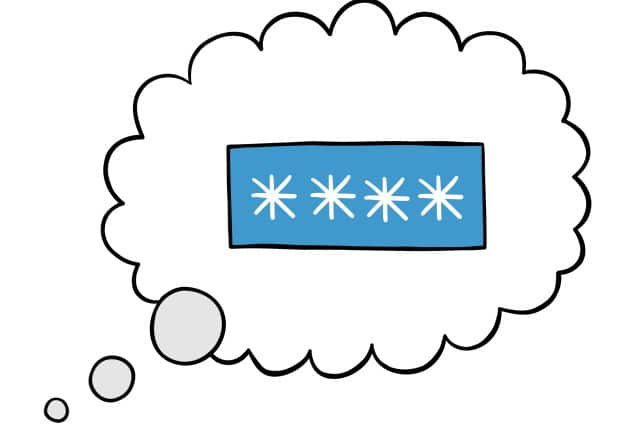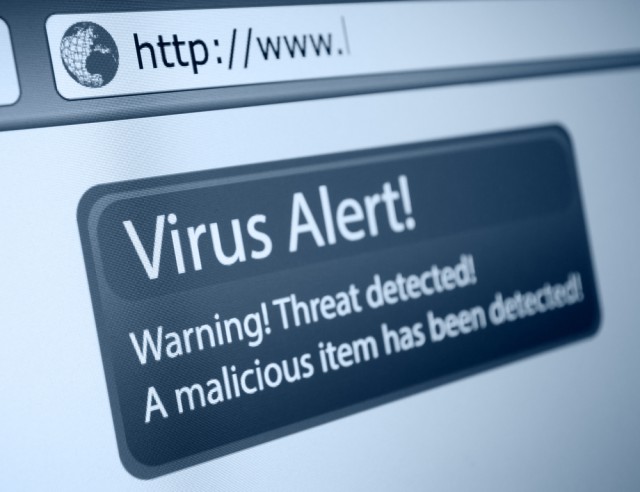
Kaspersky Password Manager was generating incredibly easily cracked passwords
A need for security means that many people rely on password managers to store their ever-growing collection of login credentials. And when the time comes to create a new user account, many such tools offer a password generator to help with the creation of something ultra-secure.
Or at least that's the idea. Security consultancy Donjon found that between March 2019 and October 2020 Kaspersky Password Manager was generating passwords that could be cracked in seconds. The tool was using a pseudo-random number generator (PRNG) that was singularly unsuitable for cryptographic purposes.

Threat actors get more creative in their attacks
The latest quarterly threat intelligence report from Kaspersky shows that many actors behind advanced persistent threats (APTs) have continued to diversify their toolsets, at times resorting to extremely tailored and persistent tools.
At the same time though others have reached their goals by the employment of well-known, time-tested attack methods.

Kaspersky 2021 strengthens VPN and stalkerware protection, updates free Security Cloud solution
Kaspersky’s rollout of its 2021 product line has reached European shores with the release of Kaspersky Internet Security 2021, Kaspersky Total Security 2021, and Kaspersky Security Cloud 2021 Free. The latter is a brand-new entry package into the company’s new cloud-based security product line.
There are several new features of note including major improvements to its 'stalkerware' detection tool in Internet Security and Total Security as well as access to the free version of Kaspersky Password Manager in lower-end packages. Security Cloud users also gain automatic checks of potentially compromised online accounts, while the recently introduced Kaspersky VPN component gains a major UI overhaul and more efficient connection process.

How pre-installed adware can cause trouble for mobile users
New analysis carried out by Kaspersky of attacks on mobile devices has revealed that 14.8 percent of its users who were targeted by malware or adware in 2019 suffered a system partition infection, making the malicious files undeletable.
It also finds that pre-installed default applications have role to play, depending on the brand, the risk of applications that can't be deleted varies from one to five percent in low-cost devices and goes up to 27 percent in extreme cases.

Kaspersky launches free online talks to spread cybersecurity knowledge
Kaspersky has announced that it's launching a series of online talks, created to present knowledge and the latest cybersecurity findings, freely accessible to anyone with an internet connection.
Titled 'GReAT Ideas. Powered by SAS' the events will be hosted by Kaspersky's Global Research and Analysis Team (GReAT), which works to uncover APTs, cyber-espionage campaigns, major malware, ransomware, and underground cybercriminal trends around the world.

One-in-50 online transactions was fraudulent in 2019
Two percent of transactions in online banking and online retail were carried out by fraudsters, and 16 percent of transactions were suspicious and required further investigation according to new analysis by Kaspersky.
Based on anonymized statistics of events detected by Kaspersky's anti-fraud solution from January to December 2019, the most common case of fraud (63 percent) was attempts to access personal accounts using malware or legitimate remote control software.

Counting the human cost of data breaches
Around 30 percent of employees who have been involved in the aftermath of a cyber incident have missed an important personal event. Some had to work overnight (32 percent) or suffered additional stress (33 percent), while 27 percent have had to cancel vacations.
A new report from Kaspersky highlights the human side of cybersecurity incidents by examining the discomfort and losses employees face following corporate breaches.

10 top tips to help you use Zoom safely
Zoom's privacy and security issues have been in the headlines for a number of weeks now, causing concern for lots of users. But many people have no option but to use the software after it has been selected by the company they work for.
If you find that you have to use Zoom, there are steps you can take to ensure your experience is as safe as possible. Security firm Kaspersky has offered up a series of tips to boost your security and privacy on the platform.

Kaspersky launches new tool to control shadow IT
With many more people working from home currently the risks to business data from the use of potentially insecure applications is increased.
Kaspersky is launching a new version of its Endpoint Security Cloud, which will enable businesses to control the unauthorized use of potentially insecure applications and sites by employees whilst working from home.

61 percent of companies now use IoT platforms
A new report from Kaspersky shows 61 percent of companies globally have implemented IoT applications as the technology benefits businesses with savings, new income streams and increased production efficiency.
But 28 percent of organizations have experienced cybersecurity incidents targeted at connected devices, highlighting the need to protect IoT technology.

New Year's resolutions go digital as people vow to cut screen time
If you haven't made or broken any New Year's resolutions yet, here are some you might like to try. Research from Kaspersky indicates that 40 percent of people plan to change their digital lifestyle in 2020 with most aiming to reduce the time they spend with their gadgets.
The research shows 42.3 percent would make a digital New Year's resolution for 2020 rather than something more traditional.

Browser push notification scams triple in 2019
Fraudulent browser push notifications as a means of delivering phishing and advertising are becoming more common, up from 1.7 million in January to 5.5 million in September this year according to the latest Kaspersky research.
Push notifications were introduced several years ago as a useful tool to keep site visitors informed with regular updates, but today are often used to bombard people with unsolicited advertisements or encourage them to download malicious software.

Security companies and domestic violence organizations join in Coalition Against Stalkerware
Ten organizations including Avira, the Electronic Frontier Foundation, Kaspersky, Malwarebytes and NortonLifeLock, have joined in a global initiative called the Coalition Against Stalkerware.
Stalkerware programs carry the possibility for intrusion into a person’s private life and are being used as a tool for abuse in cases of domestic violence and stalking. By installing these apps, abusers can get access to their victim's messages, photos, social media, geolocation, audio or camera recordings, and in some cases, this can be done in real-time.

Cybersecurity companies focus on the role of 'stalkerware' in domestic abuse
Yesterday marked the start of not just Cybersecurity Awareness Month but also Domestic Violence Awareness Month.
Domestic abusers often make use of stalkerware (commercial spyware used as a tool for domestic espionage) to leverage their partner's digital footprint for physical control.

Kaspersky helps enterprises protect blockchain projects
Blockchain is being widely touted as the technology to secure transactions and run large-scale, data-driven projects with more transparency and efficiency.
But projects which work with sensitive data will eventually become integrated with other business-critical systems and when that happens there’s a need to run security check and approvals. This is why Kaspersky is launching a new service that helps enterprises discover and fix security issues and discrepancies in smart-contract business logic while the blockchain project is on its way from internal innovation to part of actual business processes.
